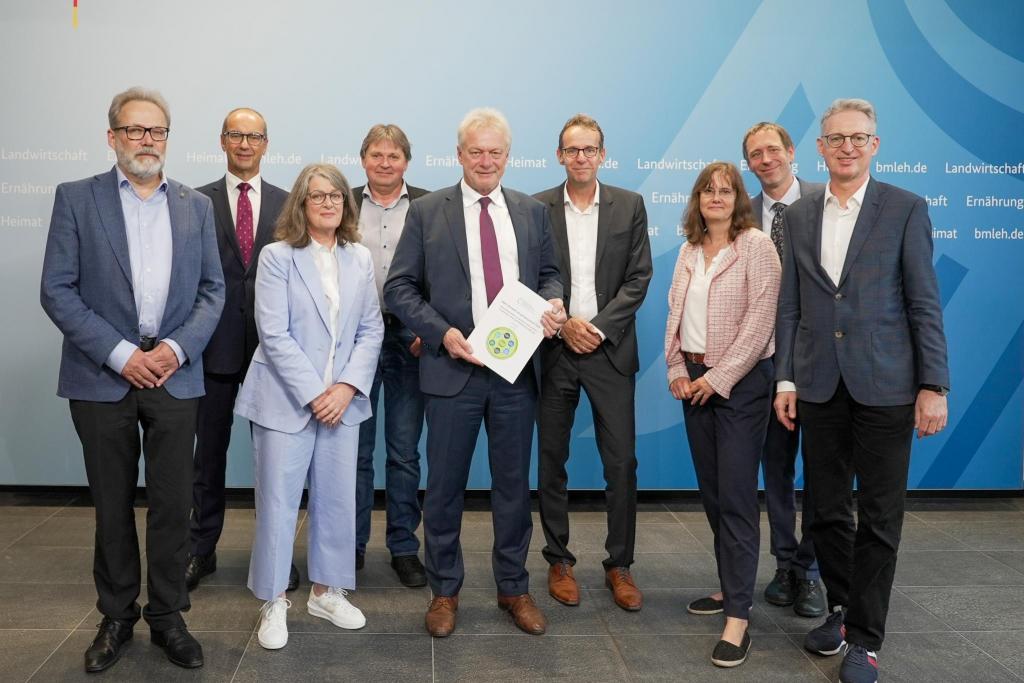Independent scientific report from Germany’s WBAE calls for de-polarisation and national leadership around protein diversification
Report calls for an ideology-free debate on the potential of alternative proteins to help build a sustainable food system.
Dieser Artikel ist hier auch auf Deutsch verfügbar.
23 July 2025

A scientific board advising Germany’s federal government has highlighted the role of plant-based food and other alternative proteins in a sustainable food system and suggested measures to unlock their environmental, health, and economic potential.
A report by the Scientific Advisory Board on Agricultural Policy, Nutrition and Consumer Health (WBAE) at the German Federal Ministry of Agriculture and Food and Regional Identity (BMLEH) calls for an ideology-free dialogue around plant-based, fermentation-based foods, and cultivated meat.
It states that these foods have a place at the ‘common table’ alongside traditional plant-based foods and conventional animal-based products.
The report comes after the EU’s Strategy for European Life Sciences pointed to advanced fermentation technologies as having ‘significant potential’ to develop a wide range of high-end products, and proposed that the Commission adopt measures to support the scale-up and uptake of fermentation.
Nonprofit think tank the Good Food Institute Europe (GFI Europe) welcomes the WBAE’s proposed measures. It says they can help overcome key barriers to market readiness for these new foods, which can present major economic opportunities for Germany’s industrial base and contribute to achieving the country’s sustainability and health goals.
A recent study from Systemiq found that with sufficient political support, the alternative protein sector could contribute up to €65 billion to Germany’s economy by 2045 and create up to 250,000 new jobs along the entire value chain.
The report calls for proactive, strategically guided support for the sector:
- Advancing innovation: The report emphasises that plant-based products and ingredients, and those developed using modern fermentation techniques and cultivation, are still in the early stages. More public innovation funding and better coordination within the scientific ecosystem are needed to unlock the full potential of these technologies.
- Regulation: The report underlines that the EU’s novel food approval process for products such as animal-free cheese developed through fermentation is well suited to balancing innovation and high safety standards, but long approval timelines and high costs can present obstacles to innovation. The Board therefore recommends stronger support for companies preparing approval applications, the creation of legally secure tasting options for novel foods (following the example of the Netherlands), and ongoing monitoring and evaluation of the approval process’s implementation at the EU level.
- Evidence-based discussion on health impacts: The report calls for a more fact-based debate on the processing levels of alternative products. The widespread perception of plant-based meat as an ultra-processed food (UPF) is based on simplistic classifications such as the NOVA score and overlooks its nutritional benefits. This echoes a proposal in the EU Life Sciences Strategy to seek expert scientific advice to help improve public understanding of UPFs.
Alex Holst, deputy head of policy at GFI Europe, said: “It’s great to see this scientific report recognising the importance of an ideology-free dialogue about diversifying our protein supply and suggesting measures that can unlock the potential of these foods to boost Europe’s biggest economy.
“With the incoming Danish presidency and the EU Life Sciences Strategy highlighting the importance of biotech in food production, this is the latest signal that momentum is building across Europe behind innovative ways to develop a more sustainable food system.”
The WBAE report can be downloaded here (in German) and a short summary can be found here (in English). The WBAE press release can be found here (in English).
